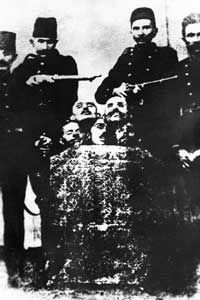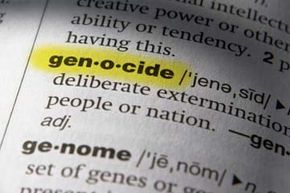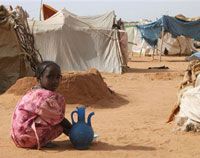The Armenian Genocide is one of history's best-known genocides. It began in 1915, and before it was over, an estimated 1.5 million Armenians were dead [source: Armenian National Institute]. Though the exact figure is a matter of debate -- in incidents where vast numbers of people are killed, statistics are based on a range of estimates -- many Armenians lost their lives. Whether they were deported and succumbed to starvation and exposure, were tortured and massacred outright, or fell victim to the many privations and epidemics that ravaged the concentration camps, the fate of the Armenians was tragic beyond words.
The horrific brutality the Armenians suffered is unarguable, but the question today is this: Although the Armenian Genocide is often cited as the first of the 20th century, were the Armenians truly the first population to suffer the horrific fate of targeted genocide in the 1900s? A lot depends on who's answering the question. Experts don't always agree what constitutes a true genocide, and they weigh the factors of specific incidents in different ways.
Advertisement
The definition of genocide used in international law, though not favored universally, was adopted by the United Nations General Assembly in 1948 and took effect in 1951. It states five acts which, if committed against a national, ethnical, racial or religious group, are considered acts of genocide.
These include:
- Killing members of a group
- Causing serious bodily or mental harm to members of a group
- Deliberately inflicting on the group conditions of life calculated to bring about its physical destruction in whole or in part
- Imposing measures intended to prevent births within the group
- Forcibly transferring children of the group to another group
[source: Genocide Watch]
It's not just the people directly involved in committing acts of genocide that can be held accountable, however. Anyone who conspires, incites, attempts and complies in committing genocide is also considered punishable under the articles of the convention. The International Court of Justice rules on cases concerning genocide, such as the one brought against Serbia that concluded in 2007 with a not guilty verdict, although the court did declare that the 1995 Srebrenica massacre of Bosnians Muslims counted as an act of genocide.
With that definition in mind, on the next page we'll take a closer look at another dire occurrence that many people consider to be the actual earliest genocide of the 20th century.
Advertisement




